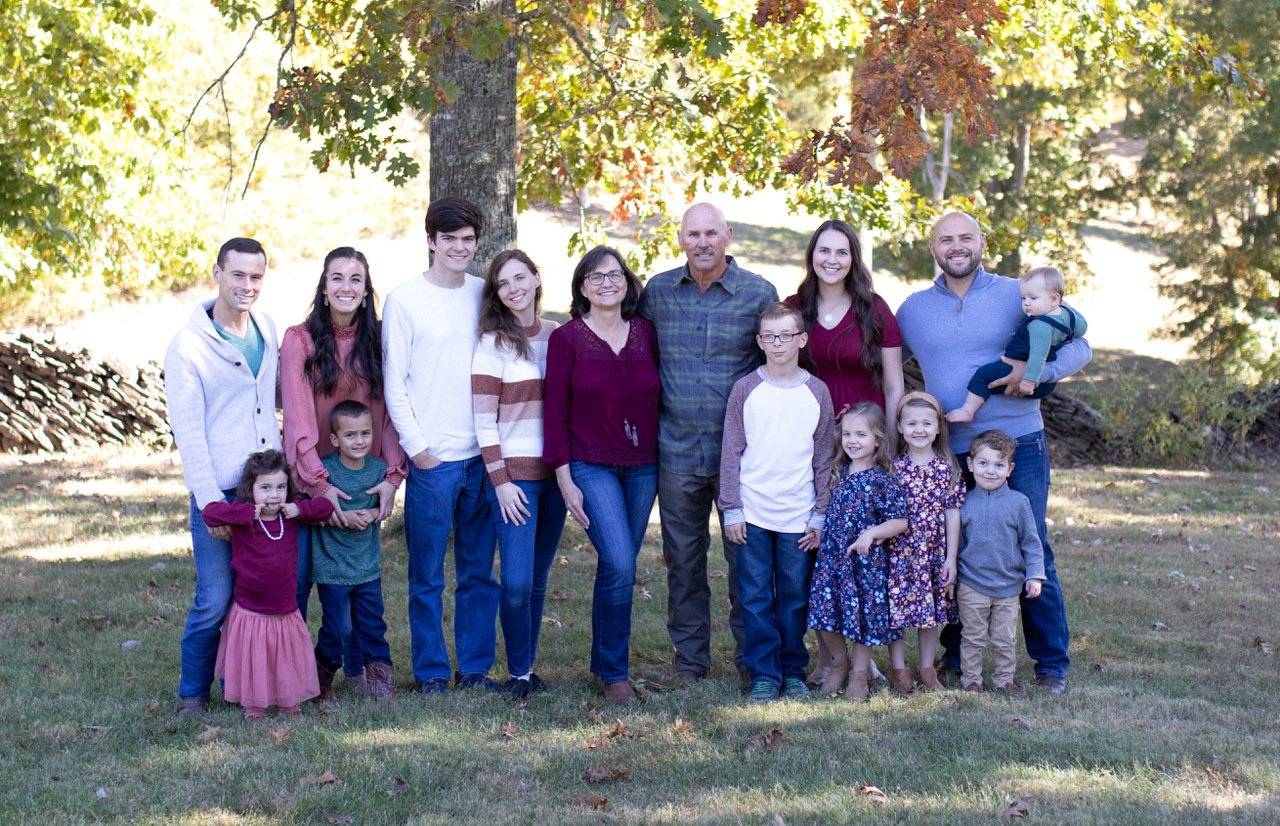Anderson County Farmers Honored with Conservation Award
Mike Wilson and family, of Whispering Hills Farm in Lawrenceburg.
Leopold Conservation Award honors environmental improvement
FRANKFORT, Ky. (July 18, 2024) – Whispering Hills Farm of Lawrenceburg is the recipient of the 2024 Kentucky Leopold Conservation Award. The award honors farmers, ranchers, and forestland owners who go above and beyond in the management of soil health, water quality, and wildlife habitat on working land.
“Farmers are some of the nation’s best conservationists,” Agriculture Commissioner Jonathan Shell said. “This award is given to those who show the greatest stewardship for our agricultural lands. It is the dedication to ethical land use shown by Whispering Hills Farm that will preserve farming for the future. Congratulations to them on an honor well deserved.”
Whispering Hills Farm’s owners, Mike and Tammy Wilson, were presented with the award at the Kentucky Association of Conservation Districts’ Annual Convention on July 16. They receive $10,000 for being selected.
Sand County Foundation and national sponsor American Farmland Trust present Leopold Conservation Awards to landowners in 28 states. In Kentucky, the award was presented with the Kentucky Agricultural Council, and the Kentucky Association of Conservation Districts.
“The Kentucky Agricultural Council is proud to once again partner in recognizing exceptional stewardship and conservation work as demonstrated by the Wilson family,” said Dr. Tony Brannon, Kentucky Agricultural Council’s chair. “The winner of the 2024 Leopold Conservation Award represents lifelong work in their community to promote good stewardship and their passion for agriculture in Anderson County.”
“Kentucky’s 121 conservation districts promote the sound management of all our natural resources, and we are excited to join in recognizing the well-deserving Wilson family,” said Allan Bryant, Kentucky Association of Conservation Districts President. “This year’s Kentucky Leopold Conservation Award recipient is truly a working family farm with a strong land stewardship ethic.”
Given in honor of renowned conservationist Aldo Leopold, the award recognizes farmers and forestland owners who inspire others with their dedication to environmental improvement. In his influential 1949 book, A Sand County Almanac, Leopold called for “a land ethic,” an ethical relationship between people and the land they own and manage.
Kentucky landowners were encouraged to apply, or be nominated, for the award this year. Applications were reviewed by an independent panel of agricultural and conservation leaders from Kentucky. Among the many outstanding landowners nominated for the award were finalists: Steve and Melanie Kelley of Bardwell in Carlisle County, and John and Randy Seymour of Upton in Hart County.
Mike and Tammy Wilson started from the ground up when they purchased 75 acres in 1999.
Conservation practices that protect soil, water and wildlife habitat were critical in turning an unproductive piece of land into a successful beef cattle business. After re-establishing a mix of forages on 45 acres of pastures, Mike began a rotational grazing system to efficiently prevent overgrazing and provide a month-long rest period to allow for plant regrowth.
Thirty acres of forests were maintained, as were 300-foot wooded buffers between pastures and creeks to prevent soil erosion and protect water quality. In addition to leasing 65 acres for grazing, the Wilsons have purchased adjacent parcels that bring their farm’s size to 197 acres.
Alleyways were installed to facilitate rotational grazing, as were nine frost-free automatic waterers connected by a water distribution system. Forage density is maintained by providing 2.5 acres to every cow-calf pair.
To minimize soil disturbance from hoof traffic during winter months, Mike experimented with portable wagons and bale grazing. He was one of two Kentucky farmers to participate in a six-state, three-year project with the USDA Natural Resource Conservation Service to evaluate the practical, economic, and ecological benefits of bale grazing.
In addition to labor and machinery costs, a benefit of bale grazing is the improved capture of nutrients (nitrogen, phosphorus, and potassium). About 80 percent of nutrients fed to cattle pass through their gut into their manure. When managed properly, the nutrients and organic matter in manure can be recycled to produce crops and forage while saving money.
In 2017, Mike built a heavy use feed pad to accommodate feeding cattle during the winter. Feeders keep hay from being trampled, and cattle do not create muddy conditions around their feed and water sources. With financial assistance from a state cost-share program, Mike has since built two more heavy-use feed pads, each serving multiple nearby pastures.
Recently, one of his pastures was planted with a mix of collards, crimson clover, and triticale as part of a University of Kentucky College of Agriculture, Food and Environment study on extending the grazing season in cool weather.
For more information on the award, visit www.leopoldconservationaward.org.

